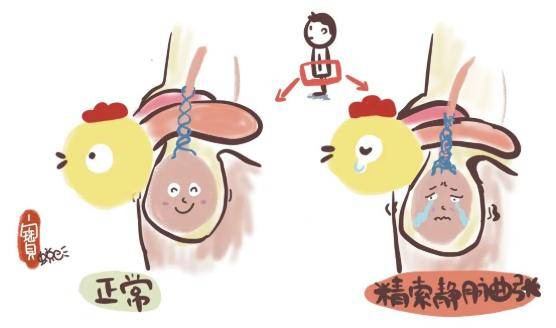There is indeed a certain association between male varicocele and infertility, but not all males with varicocele will be infertile. Varicocele refers to the abnormal elongation, expansion, and twisting of the pampiniform venous plexus in the spermatic cord, which may have adverse effects on male fertility.
Varicocele may lead to an increase in local testicular temperature, which is not conducive to sperm production and survival. Sperm require relatively low temperatures to develop and mature normally, while the local high temperature caused by varicocele can disrupt this process, thereby reducing the quality and quantity of sperm.
Varicocele may also affect the blood circulation in the testes, leading to hypoxia in testicular tissues. This hypoxic state can impair testicular spermatogenic function, further reducing the quantity and vitality of sperm, and increasing the rate of sperm abnormalities.
Varicocele may also cause disturbances in the endocrine function of the testes, affecting the secretion of hormones such as testosterone. These hormones play an important role in the generation and maturation of sperm, so abnormal secretion of hormones can also have adverse effects on sperm quality.
It is worth noting that not all males with varicocele will experience all the changes mentioned above. Some patients may only have mild symptoms or no obvious symptoms, and their semen quality may not be significantly affected. Therefore, the relationship between varicocele and male infertility needs to be analyzed on a case-by-case basis.
For males with fertility requirements, if varicocele is present with severe symptoms or abnormal semen quality, timely medical evaluation and treatment should be sought. Treatment methods include general treatment, drug treatment, surgical treatment, etc., aimed at improving the symptoms and condition of varicocele, thereby preserving male fertility.


